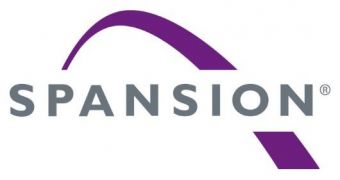Just a short time ago, Toshiba and Samsung announced that they had entered a partnership meant to facilitate the creation of DDR2 NAND Flash memory. This NAND, they hope, will eventually help increase the hold over the consumer electronic, mobile phone and storage markets. Not keen on falling behind, Elpida and Spansion decided it was time for a tighter collaboration. As such, they set up their own plans for development of more advanced NAND Products.
By means of this pact, Elpida will gain non-exclusive access to Spansion's NAND IP (intellectual property) based on the MirrorBit charge-trapping technology. The license will let Elpida create next-generation NAND products at its 300mm wafer fab based in Hiroshima. The other part of the agreement states that the output chips will be separately marketed by both companies, each set to cater to the needs of their respective customers.
"The alliance with Spansion and the licensing of Spansion NAND IP enable Elpida to develop advanced NAND products which, when combined with our leading DRAM products, allows us to better service markets including cellular handsets and digital consumer," said Yukio Sakamoto, president and chief executive officer of Elpida. "Spansion has developed a very flexible, scalable Flash technology with its MirrorBit charge-trapping technology."
"Collaborating with Elpida furthers Spansion's strategy," said John Kispert, president and CEO, Spansion. "The joint NAND development activity and foundry agreement allows Spansion to efficiently expand its product offerings and bring additional value to our customers."
Basically, this collaboration lets Elpida make scalable and competitive NAND, while Spansion is granted access to a cost-effective manufacturing solution. The reduced research and development costs are the major boon that the latter gets from this arrangement. Moving forward, Elpida and Spansion also seek to expand their collaboration to areas such as NOR Flash and manufacturing, so as to extend their influence in the IT industry.

 14 DAY TRIAL //
14 DAY TRIAL //